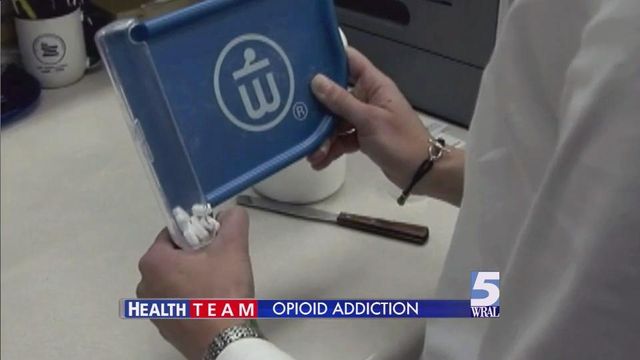Prince's possible opioid overdose shines light on widespread problem
More signs point to the possibility that pop superstar Prince died from an overdose of opioids, but the singer's death highlights a more widespread problem of opioid addiction.
Posted — UpdatedMore signs point to the probability that Prince's death could have been linked to an opioid pain addiction.
Investigators want to interview a California doctor and his son about a prescription drug sent to Prince before the singer was found collapsed at his Minnesota home.
Upon request, Dr. Howard Kornfeld sent his son Andrew Kornfield to Minnesota with the drug buprenorphine. Andrew Kornfeld found Prince unresponsive and did not administer the drug.
Investigators want to know if Kornfeld had a longer medical relationship with Prince, but neither doctor is accused of wrongdoing.
The speculation about the cause of Prince's death underscores how widespread and dangerous opioid addiction has become.
Psychiatrist Dr. Enrique Lopez from Holly Hill Hospital in Raleigh, which is the largest private psychiatric and addictive disease treatment facility in the state, says about 40 percent of the hospital's patient population come in with a dual diagnosis where opioid addiction is part of what brought them to the hospital for treatment.
Lopez says doctors as well as the user's friends or family members need to play a bigger role in preventing an addiction crisis.
"Families can play a role by basically disposing of any pain medication that is left over," Lopez said. "Doctors, we can play a role in reducing the amount of medication that we give. A lot of people get a lot of opioids, and then they end up selling them."
Lopez says there are certain signs that the patient has become addicted.
"Often what happens is people try to hide things, they stop going to social activities, they stop going to family functions, they get a little secretive, they start getting overly involved with peers who are also using – and so there's a change of personality, a change of habits, a change of behaviors that begin to happen early on," Lopez said.
There are now very effective ways of treating opioid addiction: One of the most excellent methods is a medication called "Suboxone."
Suboxone is a combination medication that includes an narcotic and naloxone—also known as narcan—which blocks the effect of opioids, including pain relief and the feeling of euphoria that the addicted user craves. The medication can be prescribed on an outpatient basis.
The Centers for Disease Control guidelines now call for doctors to write for no more than three to seven days of narcotic pain medication for acute injuries.
Doctors also need to explain to patients in great detail the benefits of these medications but also the risks, including the possibility of addiction. There needs to be an understanding at the initial writing of opioid prescriptions of what the goal is for discontinuing this medication.
Physicians can also urge patients to use the same pharmacy for all of their medication needs to have one record to prevent drug interaction problems.
In families where there have been recurrent overdose cases, they should be provided with the opiate reversal medication narcan.
Some patients, though, are at greater risk for opioid addiction, and doctors should be keenly aware of complications in these patients.
Patients are also put at a greater risk for overdose when sedatives or drugs like Valium are written at the same time as opioids.
Three studies of fatal overdoses found that 31 to 61 percent of fatal overdoses involved the concurrent use of benzodiazepines (like Valium) and opioids.
Copyright 2024 by Capitol Broadcasting Company. All rights reserved. This material may not be published, broadcast, rewritten or redistributed.





